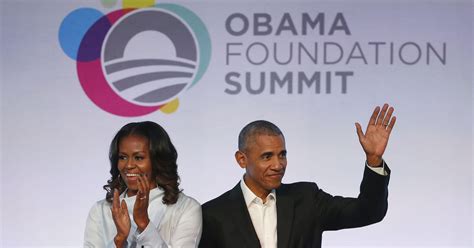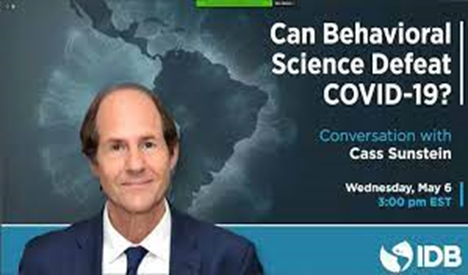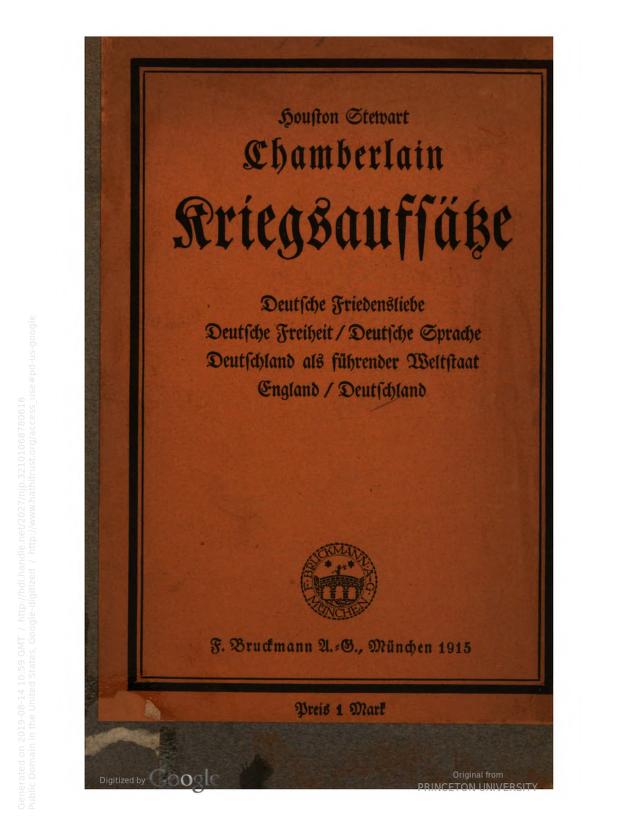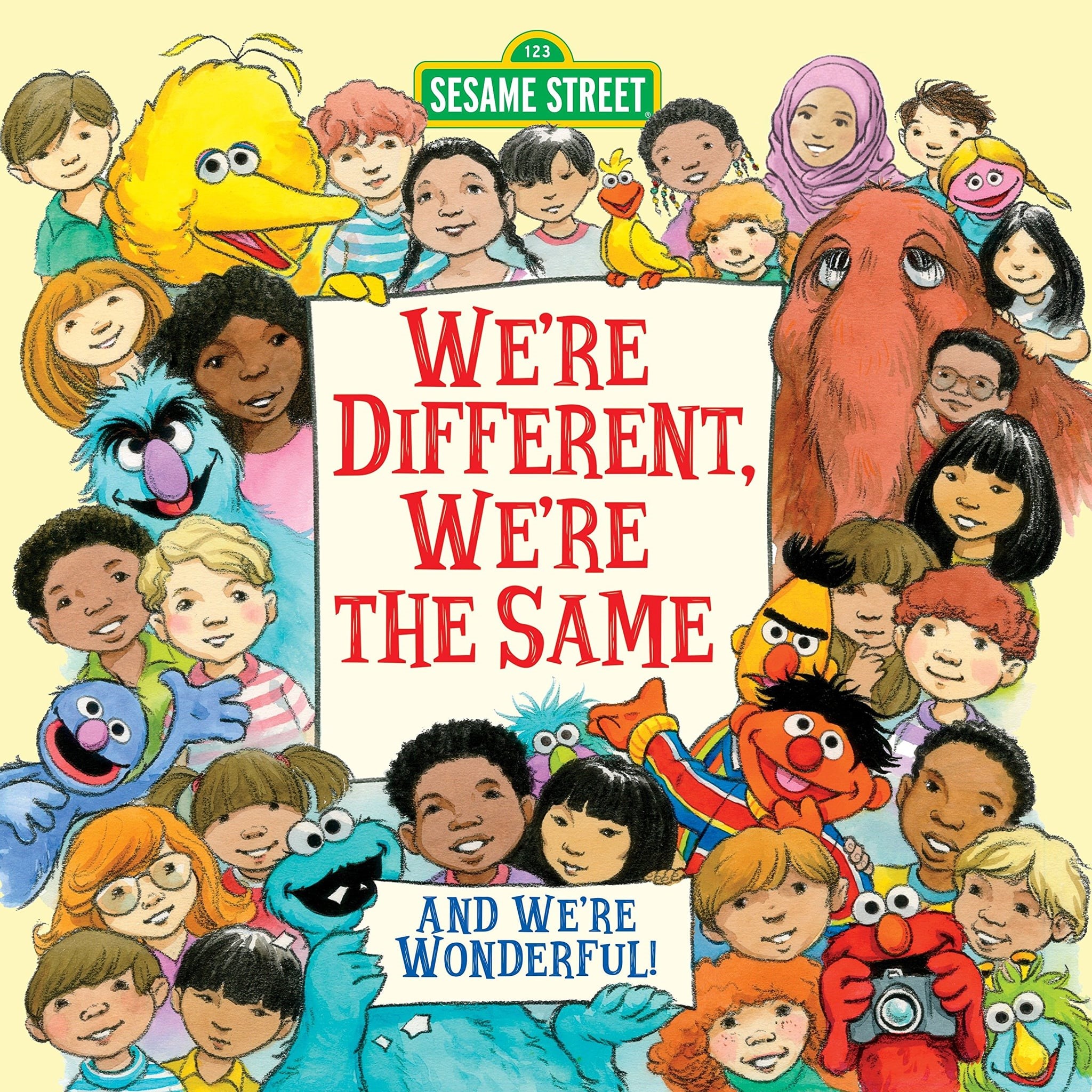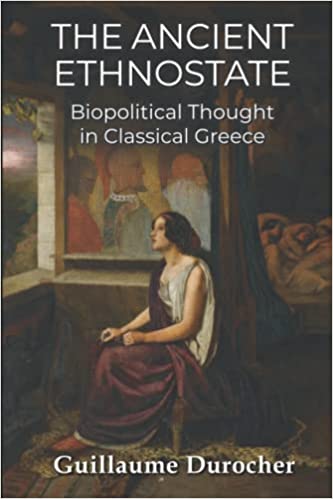Go to Alexander Jacob’s Introduction
Even when you do business, do not value your commercial advantage higher than the mercy of God, rather consider divine mercy as your greatest gain.
Cromwell, 1658
The Englishman no longer confesses today: I believe in God, the almighty Father, creator of heaven and earth, but: I believe in Father Dollar, who accomplishes everything.
Ruskin, 1880
Old experience teaches us: One who spends six weeks in a foreign land sits down confidently and writes a lively book in which the national character, the customs, the characteristics and the errors of the people are clearly described and in an amazingly simple manner; as the English say: he that runs may read. More thoughtfully does he write who has employed keenly conscientious observations for six months; his book runs the danger of boring through its many reservations and questions the reader who wished to experience something definite and now gropes, staggering. But one who has lived there six years and had the opportunity to become closely acquainted with a number of differently disposed individuals of the concerned nation so that he could accurately perceive in their disposition the consequences of events in effect and counter-effect and become acquainted not only with the character but also with the characteristic orientation of the character will give up any intention of writing a book about that nation because he cannot hope to do justice to the obviously complex situation.
It is something different when a man who himself belongs to the concerned nation, and therefore possesses an inexhaustible knowledge of the same, and ponderingly lets the past entrusted to him pass before him; deep insights then impose themselves on him at certain points, such as those where character and history intersect. Then he suddenly recognises that this character should, if the course of history had not imposed a definite orientation on it, have developed quite differently and that the same historical event would have led in the case of a differently disposed character to other results. Of course, one must proceed very cautiously whenever one speaks of the ‘character’ of a people; for this so-called character is necessarily made up of innumerable different individual characters, so one runs the danger of obtaining an image of the sort prepared by Lombroso,[1] who had fifty faces of murderers superimposed on one another in order to convey in this way the physiognomy of the ideal murderer, from which there arose a type fully without character, whose only definite characteristic is to seem like no murderer that ever lived.
In the case of a nation, however, the ubiquitously ramified blood relationship does much for a standardisation, and the so-called mass psychology, that is, the influence under which the individual lies within a community, also does much. Thus, for example, there is manifest with striking persuasiveness these days a uniformity in the German national character: 1914 is indeed, for Germany, one of those moments where history and character intersect; suddenly we obtain an insight into a depth that otherwise the deceptive superficialities hide from one’s eyes. Similarly is revealed precisely at this same moment—not, we hope to God, with the same unanimity, but still clearly and decisively—an intersection of English character and English history; and here too we stand shaken, but shaken with fear and a feeling of guilt. For it is useless when publicists declare that the English are no longer Germans—that they evidence through their conduct; but they are Germans, purer Germans than many Germans and the development of the last two hundred years has caused among other things the ever stronger emergence of the Anglo-Saxon—thus of the really German—at the expense of the Norman-Frankish (leaving aside the fact that the latter loses itself increasingly in the former through mixing). One may not throw in the influence of the Jews, which is of course especially great in the ruling government of England; Germany, however, has ten times more Jews, and where are they now? Wiped away, as it were, by the powerful upheaval, no longer to be found as ‘Jews’ because they do their duty as Germans against the enemy or at home, whereas the English Jews, who are indeed the physical brothers and cousins of the German Jews, take part in everything shameful, change their German names to English ones and in the press belonging almost exclusively to them march at the head of the defamation-campaign against the Germans. If a nation rises up, the Jew follows, he does not lead. The causes of the development are to be sought deeper, in the events of the long centuries that have led England to the place where it stands today. This was one of the possible developments of the Germanic character; it became a fact through an intersection of history and character.
One who ponders on political history will always be surprised what a far-reaching and, at the same time, incalculably ramified effect simple events and hardly perceptible turns of fate exercise. It is sufficient to focus on a single event at the beginning of England’s history and a single change that took place half a century later caused by external circumstances to understand many things that otherwise would be an unresolvable riddle. From these two facts indeed arises—as an effect—a third; from the characteristically determined effect, however, there arises necessarily an equally characteristically determined counter-effect; and so there is formed finally—as in all organic life—from the simplest elements thinkable an infinitely manifold characteristic whole in which all parts are at the same time conditioning and conditioned.
The campaign of conquest of the Normans that subjugated the Anglo-Saxon population in the 11th century is the ‘event’ that I have in mind; the ‘change’ is that through which the farming, water-shy population of England slowly, from the 16th century onwards, was transformed into a sea-faring, trading one. That differentiating character-traits inexplicable to every foreigner arose in the first place from the combination of the political system that had already reached a fine maturity under Alfred with the spirit of the Norman strongmen cannot be doubted; but as little can it be doubted that, from the moment that the change to sea-faring took place, there arose also a change of the entire system formed in the course of five centuries that had to lead finally to the catastrophe whose beginning we experience today.
In England one understands by ‘nobility’ not that which is understood thereby in other countries; it does not have to do with titles through which entire members of a family are externally elevated for all time but with the membership in a social caste that is inwardly separated from the rest of the people. Men constantly fall out of this caste, others constantly enter it through assimilation. Every Englishman who belongs to the ‘nobility’ and ‘gentry’ is recognisable in the very first minute, very often already by his facial features but always by his facial expression, gestures, voice, and especially—indeed with absolute certainty—by his language. Nobody asks about his title, which anyway only one of the living members bears, it is only a matter of the caste. Precisely the highbred people often spurn the title; to the respected families belong those who through the centuries have refused every bestowal of nobility.
One may not point to the analogy of the ancien régime in France, it leads one astray. Of course, the Frankish and Burgundian and Gothic nobility was clearly distinguishable from the rest of the people until the Revolution; today one finds those great physiognomies only very scattered in France; in England, however, the conditions are from the beginning different and have as a result of this obtained another significance. The Burgundians and Franks and Goths invaded Gaul as entire peoples, the greater parts fused completely with the earlier inhabitants, only princes and nobles held themselves separate and were numerous enough to carry out this inbreeding for a long time. On the other hand, the noble families that followed the first kings from Normandy and Anjou to England were relatively few in number; so this nobility, which accepted and assimilated into itself only a few Saxon and Danish families, remained fully separated from the remaining unmixed Anglo-Saxon people; from this arose the fact of the upper caste that distinguishes England alone which possesses to the present day its own language—more accurately its own expressions, though the expressions include numerous words and phrases that the English who do not belong to the caste correctly master as little as the expressions inaccessible to them. From this circumstance there arose a division that even today separates the population into two irreconcilable components, an upper and a lower, a noble and a common. William the Conqueror strove, but without success, to learn Anglo-Saxon; among the first kings after him—narrates the great political theorist Hobbes—those who complained about the tyranny of the new aristocracy received the reply: Thou art but an Englishman![2] And yet this mere Englishman won insofar as he refused to learn French. But similarly—and here is the critical point—the upper caste refused to learn Anglo-Saxon. From this dual character there arose a new language, we call it today English; it arose out of two conflicting languages of which each wanted the supremacy for itself; but even after the final fixation the battle continued in the two forms of expression that still prevail today: the upper class and the common.
One who focuses on this point—the language—will be able to soon obtain a deeper insight into many situations than lengthy books can give him. So, for example, high schools that are open to the entire nation—as in Germany, France, Italy and everywhere—are impossible in England. I cannot indeed send my son to a school in which he will absorb from his comrades and even from his teachers the expressions ‘igh’ for ‘high’ and ‘hi’land’ for ‘island’ and, in addition, the nasalisation that has developed so disastrously in the city folk of England at home and now in America and Australia. The grammar school and the secondary school are therefore impossible, there are institutions where the children of the upper class are educated and there are institutions where the children of those who are not upper class are educated; the boys do not know one another, never speak to one another, and mutually despise one another. Consequently also a university in the German sense is impossible. The old universities are exclusively upper class and produce those exquisite English scholars who, removed from everything common in the enclosures of their mediaeval ‘colleges’, at the same time worldly wise as happens naturally from the membership in the ruling classes of a ruling nation, often possessing unlimited leisure for researches and travels, represent perhaps in their person and their books the most perfect culture that one can attain today; indeed, one must admit that they are a greenhouse product. The new universities however are mainly only specialist schools; in them work individual significant researchers—that is, chemists, physicists, mechanists, etc.—who have almost all of them studied in Germany; they cannot influence the solely practically oriented character of the institutions, a character that in no way serves pure science. One of the supporting columns of present-day Germany thus is completely lacking in England: the schools and universities that are all-unifying, and penetrate the entire life of the nation through a thousand canals and raise it to a cultural unity.
No less is lacking in England the possibility of a popular army, of that powerful moral creation that one can call the backbone of present-day Germany. For, the German army would not possess this enormous moral force if the absolute unity of all the forces of the nation were not active in it and mirrored itself in it: from the majesty of the Kaiser to the youngest peasant recruits all form a single family, everybody is a comrade to the other, they are all united in obedience, duty and love for the fatherland. Before the army could arise and the unity of Germany could be formed into a great power, the moral and spiritual unity had to be there to wish for and create such an army. This is lacking in England. In England, the two halves of the people—the lesser and the greater—know nothing about each other, absolutely nothing. I can have a servant for twenty years and know no more about him than about the soul of my walking stick; the pride of the Englishman who does not belong to the higher caste is his unapproachability; he does not want to be asked, he does not wish to speak, he does not say ‘Good morning’ and ‘Good night’; if he meets his master on the street, he crosses over to the other side in order not to have to greet him. What kind of comradeship can there then be between officer and soldier? Whence should the unity come? It is, and remains, the relationship of a nobleman who gives orders to men from another world and compels obedience through his inherited superiority.
It may be added in passing that the Englishman of the people has always been unwarlike. The Plantagenets had many wars in France and distinguished themselves in the Holy Land; but, apart from the nobility, they did not obtain any soldiers in England; Green[3]—the well-known historical scholar—writes: ‘the population of England did not worry at all about wars and crusades; they valued their kings for only one thing, that they create lasting peace on the island.’ And that remained so to the present day when the English army consists predominantly of Celtic Irish and Celtic Scots; the actual English do not let themselves enlist. In the English battles of the past, Englishmen from the aristocracy perhaps commanded, but the armies consisted of foreign soldiers, mostly of Germans. The battles in India were conducted from the beginning mostly by Indian, not English soldiers; the legally determined norm was a fifth of Englishmen, and these ‘Englishmen’ were, as mentioned, mostly Irishmen. The delightful descriptions of the recruiting of soldiers in England that we owe to Shakespeare are known to every German from Henry IV, Part Two; in the letters of the English envoy in Venice, Sir Henry Wotton, will be found a delightful historical confirmation from the same period. At the beginning of 1617, England wished to assist the Republic against Spain. The Doge accepted the services of a Scottish count who brought with him soldiers from Scotland and Ireland but for the offered English forces he offered thanks: ‘He does not have a high opinion of them and knows how much their love of war is dependent on the three B’s—beef, beer and bed!’ Then one may consult von Noorden’s The War of the Spanish Succession;[4] one will see that, in 1708, England had to decide ‘to remedy the lack of English recruits that was becoming more perceptible from year to year through legislative means.’ It is always the same story, 1200, 1600, 1700 and 1900; I could offer dozens of examples. The insular position alone does not suffice as an explanation; the island kingdom of Japan has formed a formidable national army before our eyes. I am convinced that the real reason is to be sought in that ‘circumstance’ of racial mixture followed by the social division, and then later increased by the ‘change’, of which I shall soon speak. It may be mentioned, in addition, that the theory that England does not need any large army and should not by any means form any was supported already early by practice; no statesman was—and is still today—esteemed more highly by his countrymen than Lord Bolingbroke;[5] far beyond his own life, he remained the prophet of the particular developmental course of modern England; in the middle of the victories of Queen Anne, he explains in his ‘Remarks on the History of England’ that England should possess a great navy but not a standing army, for the latter would cause the island to ‘approach, as it were, too near the continent’, whereas it is England’s interest to have the continental powers war mutually against one another without involving ‘themselves intricately, much less continuously, in the political schemes of the continent’; an army would ‘carry great domestic inconveniencies, and even dangers too, along with [it].’
Let us mention briefly a third thing: the entire legislation of England—the state, its constitution, its politics—is the work of one social stratum alone, without the participation of the others. Hobbes, the honest, admits it: ‘Parliament has never represented the entire nation.’ The point of departure, however, was the Reformation; for, everywhere religion formed the innermost axis of all politics; and what do we find here? Those Englishmen who separated themselves seriously from Rome had to soon flee the country and seek freedom of conscience in the wildernesses of North America; on the other hand, the disengagement of the state Church as a purely political measure followed, determined by Henry VIII, who ruled in a very absolutist manner almost without any questions from the Parliament; the population of England had gone to bed as ‘Roman Catholics’ and woke up next morning as ‘Anglicans’.
One of the things that has always provoked me is the talk of the political freedom of England; it was from the beginning of its history till now a matter only of the freedom of a caste. Athens had the leisure to be ‘free’ because 400,000 slaves served 20,000 free citizens; England had the luxury of affording a so-called free parliament because this parliament was fully in the hands of rich people to whom ruling was their pleasure and life. An author known too little in Germany, Thomas de Quincey—one of the most richly gifted in intellectual acumen, knowledge, memory, and literary skill that England ever produced—shows that the increase of the influence and authority of the Lower House since around 1600 is not to be attributed to a revival of popular power but to the increase of the lesser aristocracy, thus from the families deriving from the younger sons; the latter slowly pushed aside the higher feudal aristocracy and the bishops. It was very clever of the Parliament to obtain rights even for the people: that strengthened it with regard to the king, and allowed it to behead anyone who did not wish to be interfered with by the ruling caste; no less bloodily was it able to suppress every desire of the people for power. Even today, when the suffrage is extended in such a way that significant sections of the common people have a say, the old violence of the ruling class is still maintained. Many readers will know Dickens’ description of a parliamentary election from Pickwick. I myself can confirm this from more recent times. On the day of the elections, an extra train brought in to the small provincial town where I was living 400 ‘roughs’, that is, rowdy men, terrible strongmen with insolent or criminal physiognomies, from the nearby factory city, each provided with a powerful club. That was the guard employed by the Conservative Party; in itself the elections in another city had nothing to do with these men but they were present to intimidate and—if that were not sufficient—to break their skulls. Thankfully the Liberal committee too had not been lazy and, shortly after, there emerged another 300 more terrible comrades from another place. The whole day there was yelling, cudgelling; the voters were dragged out of their carriages by their feet, the speakers smeared with rotten eggs, etc. A typical image of the freedom of political opinion and suffrage! In the evening, I experienced this on my own person. For I was at that time a pupil in a college and, of the 80 inmates of the teacher’s house, the only one who bore the Liberal colours and thereby showed himself a Gladstone[6] man; even the requests of my teacher were not able to make me lay aside the colours of my choice and to tack on Disraeli’s[7] in my buttonhole; and so the whole gang fell upon me, threw me to the ground and pommelled me until the teacher and the servants hurried to help me. On that day—it was 46 years ago—I learned more about the English constitution and the English concept of freedom than later from the books of Hallam[8] and Gneist.[9] In England’s politics, two brutalities stand opposite and complement each other: the raw violence of the class used to ruling and the elementary brutality of the entire uncultivated masses who, as described above, are nowhere associated with anything higher.
All these phenomena are derived from that event which, in 1066, destroyed the fine Anglo-Saxon state with sheer violence and created the kingdom of ‘England’. I am of the opinion that both England’s rise and its downfall are rooted here.
But now the remarkable ‘change’, because without it the general demoralisation of all strata that we lament today would presumably never have come about.
Already long ago, John Robert Seeley, in his classic book The Expansion of England,[10] refuted the legend that the English were, from the beginning, daring sea-farers in the manner of the Vikings and the early Normans; the opposite is true. It cost much effort and time to give the English a taste for the water. Seeley remarks at the same time that the English in reality are not conquerors; they have founded colonies where the countries stood empty or were inhabited only by naked savages; others they snatched through contracts from the Dutch, French, Spanish or—for example, Malta—through breach of contract. India was subjugated by Indian troops; England has never undertaken campaigns of conquest through force of arms, like the Spanish and the French. The Englishman does not, like Alexander or Caesar, conduct wars for the sake of glory. ‘To England’, says Seeley, ‘war is throughout an industry, a way to wealth, the most thriving business, the most prosperous investment, of the time.’ One may praise it or not, I mention it only because this trait complements the others: that the English are not soldiers and also not bold and reckless sea-farers but were attracted to the water solely by trade; both the army and navy are not for the defence and strengthening of the homeland but for the promotion of the assets held in all parts of the world—certainly industrious and brave but not the expression of a national need or a moral idea.
Naturally its insular position brought with it, from the beginning, the fact that England had to obtain many things from beyond the water; not only conquerors came from there but also all sorts of wares. But for long centuries this trade lay in foreign hands. Among the successors of William the Conqueror it was the French of Normandy and Picardy who monopolised English trade; then the German Hansa intervened, then the so-called Flemish Hansa; Venice and Genoa took care of the entire trade from and to the Mediterranean according to special arrangements without the intercession of English ships. Even the fishing on the English coast was conducted mostly by Dutchmen so that, when Henry VIII sought to promote the tentative efforts of the first company of ‘merchant adventurers’ and to create for their protection a small navy, he did not know from where he should get the sailors; there were no sailors among the English. And to remedy this defect a law was passed in 1549 under his successor Edward VI that ordered the eating of fish on Friday and Sunday evening, as well as on all days of penitence, on pain of fines! Elizabeth did not fail to sharpen this regulation and otherwise too to promote fishing as much as possible. At a time therefore when Italians, Spaniards and Portuguese had already produced generations of brilliant, heroic ocean-farers, obligatory regulations had to compel the English to herrings and flounders so that they would become familiar with the watery element! (cf. Cunningham, Growth of English Industry and Commerce).[11] Of course, now it proceeded quickly in an upward direction and that Doge who thanked English soldiers was glad to accept the help of some English warships that were indeed only armed merchant ships but were still counted as part of the royal navy. For the very first time in history seven English warships sailed into the Mediterranean Sea in July 1518 as a modest component of a powerful Dutch and Venetian navy (Corbett, England in the Mediterranean).[12] Now England had recognised the new world situation and the opportunity for enrichment that it offered precisely to it. All problematic things had indeed been carried out already by others: the eastern and western routes discovered, the New World opened up, India made accessible, relations established with China; now it was a matter only of grasping at Mephistopheles’ morality:
One asks about what and not about how?
I do not have to know anything about sailing,
War, trade and piracy,
Are threefold and not to be separated.[13]
In these words the now developing policy of England is accurately described: war, trade and piracy.
As soon as England set its mind on overseas trade, there is also hatred: and indeed first of all against the German Hansa; one who wishes to learn more needs only to consult Schanz’s Englische Handelspolitik.[14] Immediately there is also the robbery system: without declaring war England falls like a vulture upon the unsuspecting Spanish Jamaica and founds in this way its West Indian empire. For a long time England’s ‘colonial activity’ was limited to intercepting Spanish galleons that were sailing home laden with gold and precious wares. Everywhere England, conducting merchant voyages, developed more than the other nations and then became after their destruction ever greater. Piracy leads the way; trade prospers upon it; one makes war where nothing else works, but always bearing in mind the ‘island policy’ of Lord Bolingbroke. First England allied itself with Holland to destroy Spain’s colonial empire, then with France to cut the vital nerves of Holland; then it spied how brilliantly the great Frenchman Dupleix had apprehended the Indian problem, imitated him gradually and incited the Indians against the French, who were conducting their trade peacefully there, then the Indians against the Indians until it had finally subjugated one of the richest empires in the world ‘without conquest’. At the turn of the 19th century, the gentle and at the same time consistently keenly perceptive Kant judged England to be ‘the most violent, warlike state’. How godforsakenly amoral the people soon became under the influence of this new spirit a single example may bring to light. How the battles that Marlborough[15] won with his German soldiers are celebrated in English schools! Now what was their real goal and its success? To ensure to England the monopoly of the slave trade! Lecky, the author of the great History of England in the Eighteenth Century,[16] says that, after the Peace of Utrecht (1713), the slave trade constituted the ‘central point of the entire English politics’. The English conducted it so long as it remained profitable; Liverpool became important not through its industry but through the hunting and selling of unfortunate millions of blacks. The patriotic historical writer Green writes literally: ‘The frightful cruelties and nefariousness of this trade, the ruin of Africa and the destruction of human dignity did not arouse compassion in any Englishman.’ Then, however, Green passes to the description of efforts of individual philanthropists; but these were not able to effect anything for decades; Parliament remained deaf, the businessmen were indignant … until the day when a new situation made this trade seem undesirable and now, under disgustingly hypocritical protestations of humanity and England’s mission to lead all other nations in an enlightened manner, etc., slave-trade was legally abolished. On this we are so fortunate to possess the clear immortal judgement of Goethe: ‘Everybody knows the declamations of England against the slave-trade and, while they wish to make us believe what humane principles underlay this procedure, it is now discovered that the real motivation was a real objective without which the English, as is well-known, never act and which one should have known. On the west coast of Africa they used the negroes even in their large estates and it was against their interests to remove them from there. In America itself they had established large negro colonies that were very productive and that provided yearly a large yield of negroes. With these they supplied the North American needs and, since they conducted in this way an extremely profitable trade, the import from outside was very much in the way of their mercantile interests and they therefore preached not without a reason against the inhuman trade.’
It is impossible within the scope of an essay, and perhaps even unnecessary, to describe how in this way of an increasingly more exclusive devotion to trade, industry, generally to the acquisition of money, England’s agriculture declined. At the turn of the 18th and 19th centuries, English weavers still lived in the country in comfortable houses with vegetable gardens and fields; today only a very rich businessman can afford the luxury of living in the country in England because its cultivation does not pay the costs. In 1769, with a total population of 81/2 million, 2,800,000 were occupied in the cultivation of the land and the raising of cattle; in 1897, with a population of around 40 million, altogether 798,000 men and women worked on the land (Gibbins, The Industrial History of England, 5th edition).[17]
To this is related a deep transformation of the entire character of the population in both its strata; through this change the life and soul of the Englishman was slowly fully transformed. The old England had for centuries enjoyed the immeasurable fortune of not having to fear any external enemies and it had had its few wars fought, as already mentioned, by foreign soldiers. In this way agricultural work and life flourished and—as the old poets show us and the new scholars demonstrate to us statistically—not only the lords but also the small tenants and farm labourers were incomparably better off than now. In all of Europe England enjoyed the fame of congeniality and ‘cheerfulness’. A traveller of the 15th century is struck by the fact that the English, ‘less plagued than other peoples with hard labour, conduct a refined life and one more devoted to intellectual interests’; another celebrates their incomparable ‘courtesy’. All of that has changed. In the essay ‘German Freedom’ (p.19),[18] I mentioned some things about the ‘intellectual interests’ in present-day England; but as regards ‘merry old England’, whose highest flowering—known to, and loved by, every one of us from Shakespeare and Walter Scott—falls in the times of Henry VIII and Elizabeth, it has gradually disappeared, at first slowly and later frantically fast, exactly in step with navigation and industry—though inversely. In the novels of the 18th century it glows in a heavy, uncanny twilight; Dickens’ genius reveals it still in the middle of the 19th century in the hearts of individual naïve eccentric souls where it flickers here and there in between caricature and melancholic insight into their own unreal shadow existence nearing death; today, the last trace is trampled upon: one finds in England no stateliness, no broad good-natured humour, no cheerfulness; everything is hatred, noise, pomp, pretentiousness, vulgarity, arrogance, sullenness and envy. One remembers the fine old-English Christmas festival with the decorations of fruit-bearing holly and mistletoe under which innocent kisses were stolen; at least on that day, even thirty years ago, in all of England only a few men could be tempted out of their house; today the halls of all the big hotels of London are, already weeks before, rented out; families sit at 1000 tables, eat and drink and are noisy until, at midnight, the unified scream of trivial popular songs in the style of ‘he’s a jolly good fellow’ arises, after which celebration of fraternity, the tables are quickly removed and now all these young men and girls, who did not know each other previously, give themselves in disgusting promiscuity to the enjoyment of negro dances, while the more serious play cards in the adjoining rooms; in this way is the birth of our Saviour Jesus Christ celebrated today in England! And I choose this example from the many deliberately because in this tasteless way of enjoying oneself the opposite of ‘merry England’ is announced. For, the word ‘merry’—the American philologist Whitney[19] instructs us—has no Germanic relationship; the Anglo-Saxons took it from the defeated Celts, among whom it signified ‘child’s play’, for an indication of the delight in country beauty, that is, in meadows and woods; even Shakespeare calls the humming of bees ‘merry’; from that the word was expanded to the indication of joy in music, that is, in song; and only a third developmental phase used it for cheerful innocent joy in general. In this so characteristically significant word are clearly reflected the early English folk. And I do not think that any Englishman with judgement will contradict me if I say: we were ‘merry’, we are that no longer. With the total decline of country life and with the equally perfect victory of the sole God of trade and industry, Mammon, the genuine, harmless, naïve, heart-warming cheerfulness has disappeared from England. And that recalls to mind an old English saying: ‘’Tis good to be merry and wise’; the one who is merry is also wise; the one who is not merry is certainly unwise.
I think I may maintain with certainty that the catastrophe of the complete decline of English cheerfulness, English wisdom, English honesty (for even this was proverbial in older times) is to be attributed to the circumstance that the change to war, trade and piracy affected the nation in its characteristic twofold constitution. All culture—religion, education, army, art, legislation, customs—considered well, presupposes unity if it should penetrate an entire nation in such a way that every simple man receives something from it; what is meant by that we know precisely in Germany and so I do not need to describe it; in England, they do not know anything about this. As soon as the brave Anglo-Saxon peasant was transformed into a pirate the blond beast appeared, as the German philologist glimpsed in his crazy dream; and as soon as the refined noble of the 15th century had lost ‘intellectual interests’ and had become covetous of gold, there arose the heartless slave trader who was different from the Spanish men of violence only in his hypocrisy. There is nothing more brutal in the world than a crude Englishman; he indeed possesses no other support than his crudeness. Mostly he is not a bad man; he has openness and energy and optimism; but he is ignorant as a kaffir, does not undergo any schooling in obedience and respect, knows no other ideal than ‘to fight his way through’. This crudeness has slowly imbued almost the entire nation from the bottom to the top—as is always the case. Even fifty years ago it was an offence against class dignity if a member of the nobility took part in industry, trade and finance; today, the head of the oldest and greatest house of Scotland, brother-in-law of the king, a banker! Sons of counts and dukes disappeared from society; one enquires about what remains of them: ‘Oh, he’s making his heap!’, that is, his million; where and how is not asked and not said; suddenly he re-emerges as a rich man and then everything is alright.
Meanwhile, however, another sort of coarsening had entered in the upper caste that is still more alarming in the political context: in externally consistent good manners and genteel respectability the moral compass has ‘lost its north’; the temptation to enormous power on the basis of immeasurable wealth was too strong; in the nobility and in the circles related to it one soon was not able to distinguish between right and wrong. The same man who would never have deviated from scrupulous decency committed every crime in the supposed defence of the fatherland. The prophets among us—a Burke, a Carlyle, a Ruskin—have already for a hundred years and more pointed out the frightful decline in love of truth—which was once held so uniquely sacred! Even for this I would like to give in conclusion an example—since detailed discussion is excluded; the reader will learn to see what path or, rather, wrong path England has taken.
The name Warren Hastings will be known to most. Even as an immature boy he entered into the service of the East India Company; he continued until he became the Governor-General. Without question, England owes its rule in India in the first place to this man, who understood with Machiavellian cleverness to play against one another the different provinces and tribes and religions of India and, besides, to incite them all against the competition of the French. Along with an eminent power of understanding and an iron will, Warren Hastings was distinguished above all by the fact that he had no misgivings in political matters. He had to do with tyrants like Tipu Sultan,[20] with criminals who had risen from the lowest castes to princes and now ruled like wild animals over the submissive Indians, with old witch-princesses who held their own sons in prison, to carouse longer in the blood of their people, in short with the worst pack of Asiatic monsters that poor India had become a victim of; certainly gentle means were not in place there, and if the trading company or the English government standing behind it had intervened with powerful armed force, they would have accomplished a noble work nobly. But nothing of the sort happened. The government did not think of intervening in a helpful way with money or soldiers, and the company did not want increased expenses but, on the contrary, increased revenues. And so Hastings allied himself once with one Indian prince, at another time with another; he did not inquire into right and justice, rather he protected the greatest rascals among the throne-robbers as long as he served thereby the interests of his trading company and therewith also—as he thought—those of England. Above all, money was necessary; how otherwise should he equip and maintain an army? India had to pay for India’s subjugation. And so Hastings sought among the rival princes those that promised him the most financial payments; these he supported with all those means that a European had at hand. In this way he almost doubled the revenues of the East India Company. But how was that possible? How could the princes concerned make such large payments and provide so many soldiers? Through such frightful cruelties that the world has not heard of anything similar until the dear Belgians recently occupied the Congo basin, cruelties that have brought eternal shame on the idea of humanity, for no animal could think of them and no devil would have exercised them on innocent people. Then, in 1786, the great Burke—already immortal through this single act—entered and enraptured the Parliament through his eloquence to bring accusations against the man who shamed the good reputation of England. When the matter was brought to the Upper House as the highest judicial authority, Burke spoke six days consecutively, substantiated the complaint in every detail and concluded with the words: ‘I accuse Warren Hastings in the name of the eternal laws of justice, I accuse him in the name of human nature, which he has covered with dishonour.’ The trial dragged on for ten years, that is, was dragged on with all judicial means and ruses. One can imagine how difficult the distance of India at that time made all the interrogations of witnesses and procedures and how much this benefited Hastings and the trading company. Over and over again it was repeated: ‘Yes, he increased the revenues from 3,000,000 pounds sterling to 5,000,000; what more do you want? Even today one finds these figures quoted in English books almost everywhere; therewith Hastings was considered as being justified. Besides, he had invented the notorious opium trade; should such a genius be punished? Pitt, who as Prime Minister knew the papers, said: ‘There is only one rescue: he must plead state emergency.’ In short, Hastings was acquitted. Burke, in the last of his great court speeches, his heroic attempts—many times did he faint with exhaustion—to help bring the good case to a victory, spoke the eternally memorable words: ‘My lords, if you close your eyes to these atrocities then you make of us Englishmen a nation of concealers, a nation of dissemblers, a nation of liars, a nation of forgers; the character of England, that character which more than our arms and more than our commerce has made us a great nation, the character of England will be gone and lost[21] … We know, I say, and feel the force of money; and we now call upon your lordships for justice in this cause of money. We call upon you for the preservation of our manners, —of our virtues. We call upon you for our national character. We call upon you for our liberties.’
The day on which Warren Hastings was acquitted—23 April, 1795—is one of those days of which I spoke at the beginning of this essay, where history and character intersect and we suddenly cast a glimpse into our innermost. The new England—that already had been coming into being from out of the old conception—now appeared there full-fledged. Hastings had not enriched himself personally; he had not as a private individual betrayed other private individuals; he had perhaps not killed a fly in his life; but in the interest of his fatherland he did not shy away from any lie, any perjury, betrayed the one who trusted him, did not protect the innocent, and raised criminals to the throne; he tolerated that other men commit cruelties of the most frightful sort while he simply shrugged his shoulders and did not want to know anything about them, dismissed English officials who, shocked, reported of this. As we see, with the new England the modern English statesman also appears. Precisely such a man is Sir Edward Grey:[22] for years he has constantly held the chairmanship of conferences for the maintenance of peace—so that the intended war would not yet materialise, for years he has sought ‘rapprochement’ with Germany—so that the upright German statesmen and diplomats may not notice the intention of the self-willed war of destruction; the German Kaiser almost averted the danger of war in the last moment—Grey, the anointed apostle of peace was able to shuffle the cards in such a way that it would be inevitable; otherwise England abominated regicide—now, when the unheard of happens, and active state officials and officers prepare it and an heir to the throne has the neighbouring heir to the throne shot, now not a single word of shock, but Grey discovers England’s mission ‘to protect the small states’; the English government allows Antwerp, in ‘neutral’ Belgium, to be transformed into the strongest fortification in the world, it sent English ammunition already in 1913 to Maubeuge;[23] Grey already has in his pocket the military agreement with France and Belgium for the invasion of Germany from the north, all the details of the landing, the advance, etc. are in black and white—and yet he is able to arrange things in such a way that it is Germany which, through an extreme emergency—we know that it would otherwise have been destroyed—‘broke the neutrality’; for the first time in the history of the world the entire English navy was mobilised at the beginning of July—but only for a harmless review before the king; quickly even a friendly warship visit to Kiel is arranged—for the other attempts to spy out this port had failed. … That is the present-day political England as Burke had predicted it: ‘Let us not worry about this England; in a hundred years it will be numbered among the dead nations.’ Even I do not believe in the enormous power of England, of which we hear so much; true power can be rooted only in moral power; the individual Englishman is brave and virtuous, the state of ‘England’ is rotten to the bones; one needs only to take hold of it firmly.
Germany is now constituted so entirely differently that it did not understand England—the present-day political England—for years and repeatedly allowed itself to be deceived by it; I almost fear that this will happen no less in the future; that could be disastrous. Therefore I, an Englishman, must have the courage to testify to the truth. Only a strong, victorious, wise Germany can save us all.
Bayreuth, 9 October 1914.
Alexander Jacob obtained his Master’s in English Literature from the University of Leeds and his Ph.D. in the History of Ideas from the Pennsylvania State University His post-doctoral research was conducted at the University of Toronto while he was a Visiting Fellow at the departments of Political Science, Philosophy, and English Literature of the University of Toronto.
His scholarly publications include De Naturae Natura: A Study of Idealistic Conceptions of Nature and the Unconscious, Franz Steiner, Stuttgart, 1992, (2nd ed. Arktos Media, 2011), Indo-European Mythology and Religion: Essays, Melbourne, Manticore Press, 2019, Nobilitas: A Study of European Aristocratic Philosophy from Ancient Greece to the Early Twentieth Century, University Press of America, Lanham, MD, 2001, and Richard Wagner on Tragedy, Christianity and the State: Essays, Manticore Press, 2021.
He has also published several English editions of European thinkers such as H.S. Chamberlain, Edgar Julius Jung, Alfred Rosenberg, Charles Maurras and Jean-François Thiriart.
[1] Cesare Lombroso (1835-1909) was an Italian criminologist and phrenologist.
[2] Thomas Hobbes, A Dialogue between a Philosopher and a Student of the Common Laws of England (1666).
[3] John Richard Green (1837-1883) was an English historian noted for his four-volume A History of the English People (1878-1880).
[4] Carl von Noorden, Der spanische Erbfolgekrieg, Düsseldorf, 1870.
[5] Henry St John, Viscount Bolingbroke (1678-1751) was a Tory politician and political philosopher.
[6] William Gladstone (1809-1898) was a Liberal politician who served as Prime Minister of the United Kingdom four times between 1868 and 1894.
[7] Benjamin Disraeli (1804-1881) was a Conservative politician who served twice as Prime Minister of the United Kingdom.
[8] Henry Hallam (1777-1859) was an English historian who wrote a history of mediaeval Europe and a constitutional history of England.
[9] Heinrich Rudolf von Gneist (1816-1895) was a German jurist and politician who wrote a work on Das englische Parlament (1886).
[10] John Robert Seeley, The Expansion of England: Two Courses of Lectures (1883) is a study of the development of the British Empire.
[11] William Cunningham, The Growth of English Industry and Commerce, 1882.
[12] Julian Corbett, England in the Mediterranean: A Study of the Rise and Influence of British Power within the Straits 1603-1713, 2 vols., 1904.
[13] Goethe, Faust, Act V, Offene Gegend.
[14] Georg Schanz, Englische Handelspolitik gegen Ende des Mittelalters, 1881.
[15] John Churchill, Duke of Marlborough (1650-1722) was an English statesman and general. He is famous for his military victories in the Low Countries between 1704 and 1709.
[16] William Edward Lecky, A History of England in the Eighteenth Century, 8 vols., 1878-1890.
[17] Henry de Beltgens Gibbins’ The Industrial History of England was first published in 1890.
[18] Another of the essays contained in the Kriegsaufsätze.
[19] William Dwight Whitney (1827-1894) was an Ame
rican philologist who specialised in Sanskrit.
[20] Tipu Sultan (1751-1799) was a ruler of the Kingdom of Mysore who was allied with the French against the British East India Company.
[21] The original of this section is: ‘But if, by conniving at these frauds, you once teach the people of England a concealing, narrow, suspicious, guarded conduct: if you teach them qualities directly the contrary to those by which they have hitherto been distinguished: if you make them a nation of concealers, a nation of dissemblers, a nation of liars, a nation of forgers; my lords, if you, in one word, turn them into a people of banyans, the character of England, that character which more than our arms and more than our commerce has made us a great nation, the character of England will be gone and lost.’
[22] Edward Grey, Viscount Grey of Fallodon (1862-1933) was a Liberal politician who directed British foreign policy during the First World War.
[23] Maubeuge is a city in France where Britain, according to the Germans, had stored ammunition even before the war in anticipation of an invasion of Belgium, though this was denied by Britain.




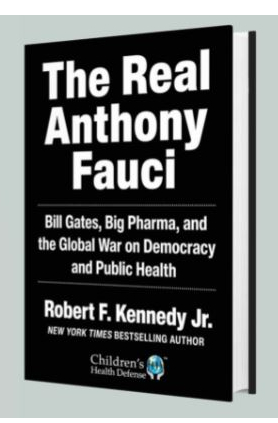






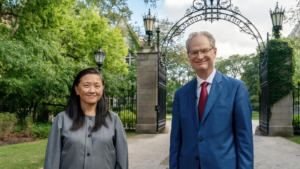

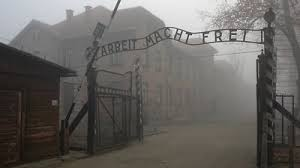
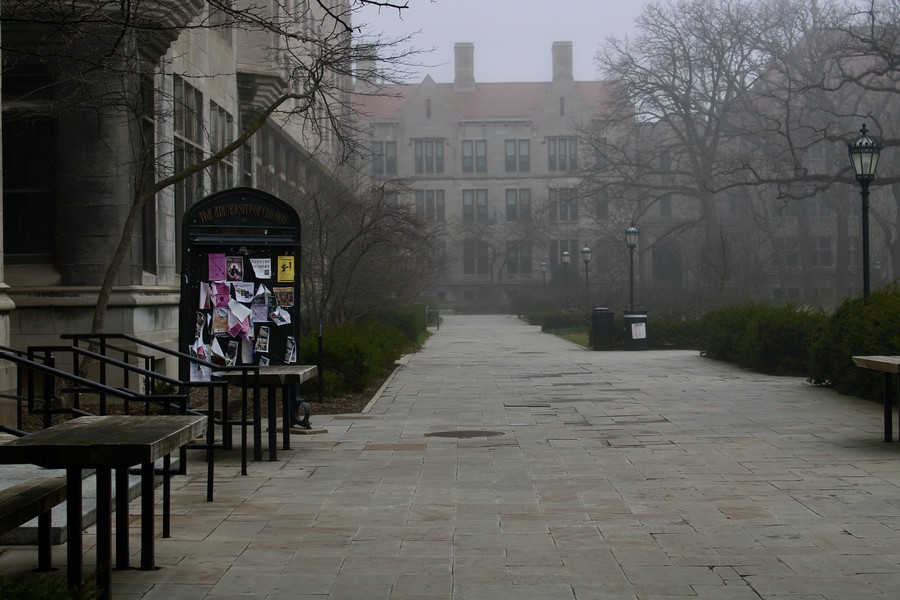 UChicago: “Learning makes you
UChicago: “Learning makes you 






